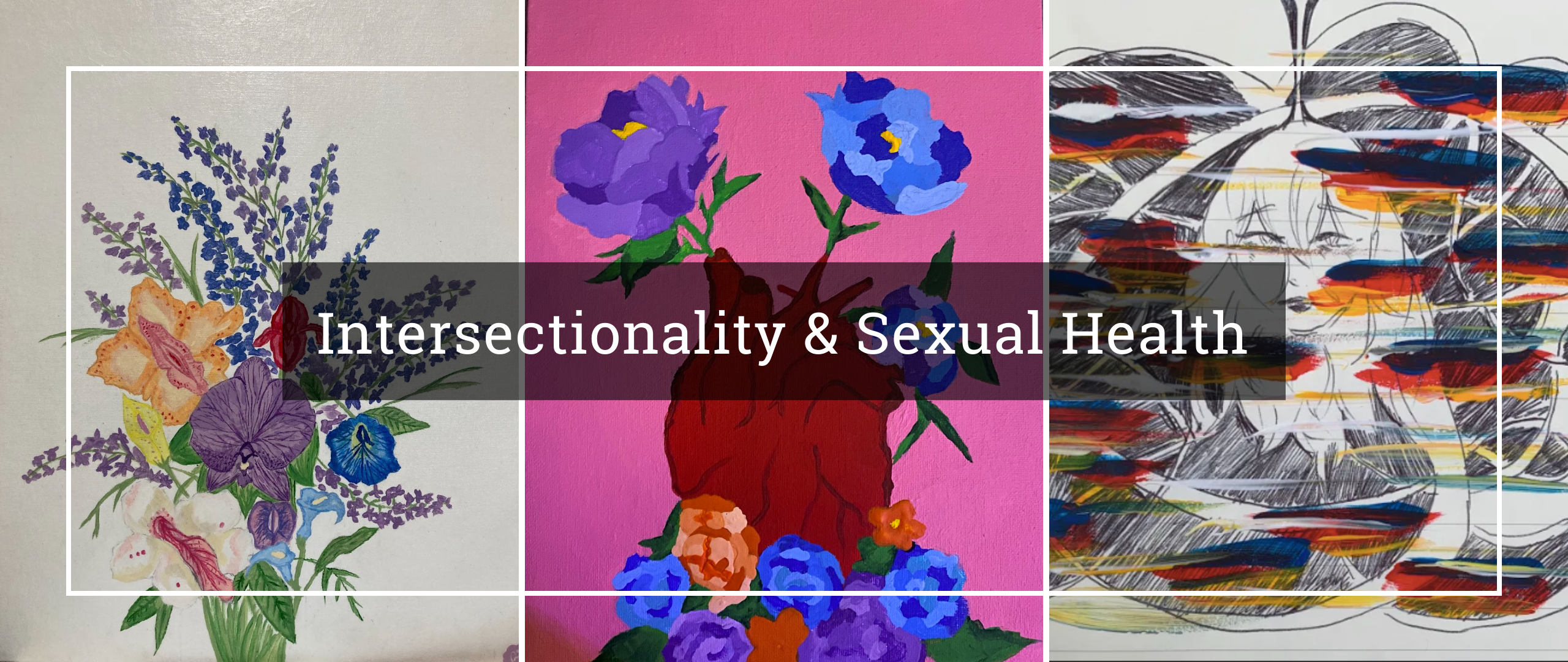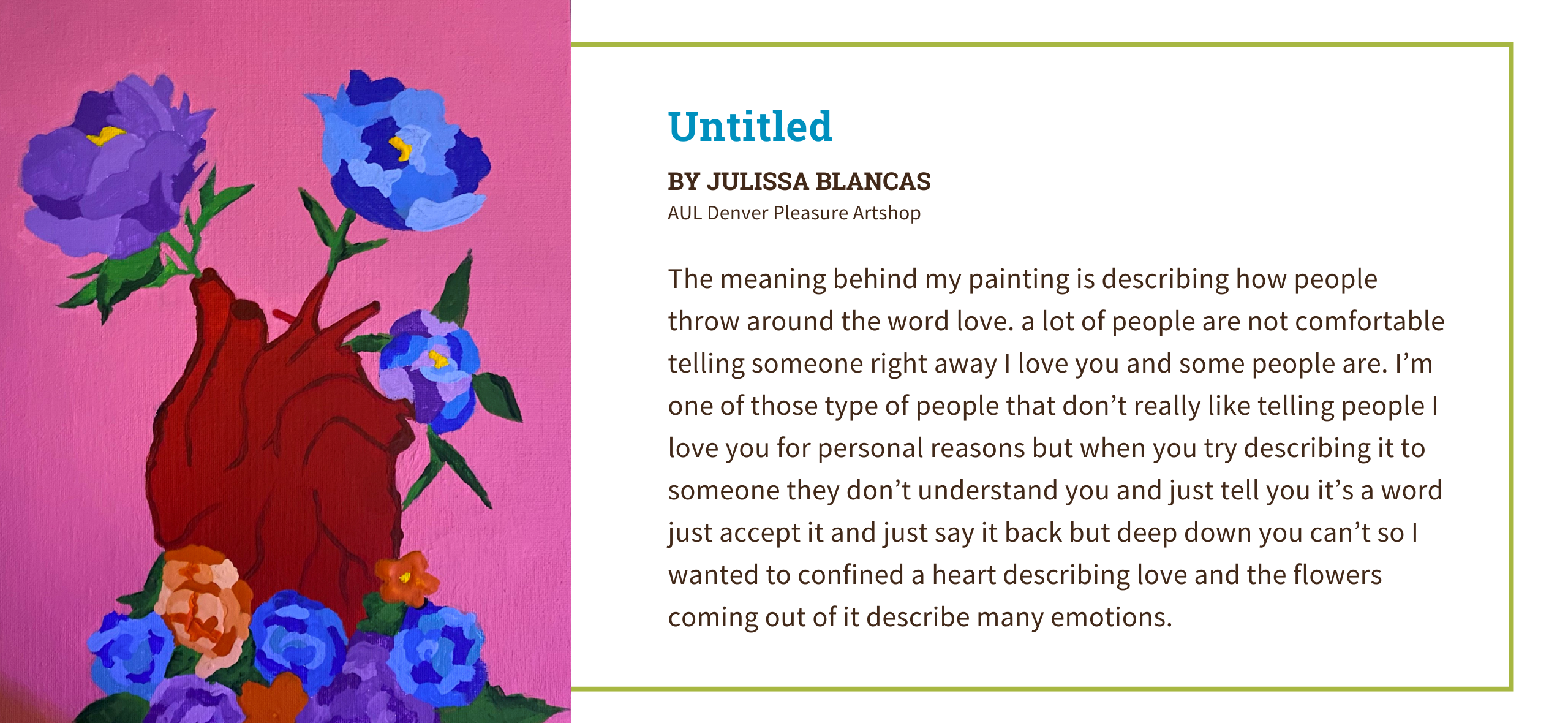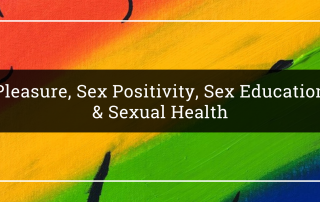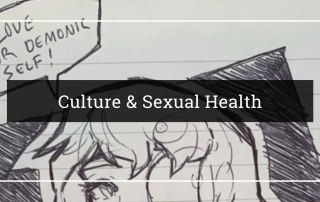
Written and researched by Tomei Kuehl
Accompanying artworks selected in partnership with Talia Cardin, Youth-facilitator to the Youth Sexual Health Program Board
Intersectionality:
“Intersectionality is simply about how certain aspects of who you are will increase your access to the good things or your exposure to the bad things in life….It’s basically a lens, a prism, for seeing the way in which various forms of inequality often operate together and exacerbate each other.”
– Kimberlé Crenshaw, shared in an interview with Time Magazine
An intersectional understanding and approach to sex education is imperative because our intersectional identities require something different and unique for each of us. Issues relevant today such as decreased funding for public education, limitations on sexual health and reproductive rights, the threat of sexual assault on college and university campuses, the disproportionate impact of HIV on young people of color, and anti-transgender legislation are all related to sexuality education and cannot be equitably challenged without an understanding of the complex interplay across social hierarchies and identities (Garcia & Fields, 2017).
Loretta Ross, an African American academic, feminist, and activist for reproductive justice, sums this up stating, “a key criterion for reproductive justice is realizing that no individual can make reproductive decisions outside of the context in which they’re embedded….I watched the Indigenous woman shift the lens and redefine reproductive justice incorporating sovereignty in a way that wouldn’t have occurred to or was not needed by Black women. I watched Latinas shift it and incorporate a struggle against immigration rights that again would not have occurred to Black women. I watched white women re-center it and talk about critical white feminism as a way of resisting white supremacy among white women.” There is room for all of us and we need one another to understand our unique needs based on our intersecting identities.
References
- “She Coined the Term ‘Intersectionality’ Over 30 Years Ago. Here’s What It Means to Her Today” by Katy Steinmetz for TIME magazine
- Garcia, Lorena & Fields, Jessica (2017). Renewed commitments in a time of vigilance: sexuality education in the USA, Sex Education, 17:4, 471-481, DOI: 10.1080/14681811.2017.1285387




